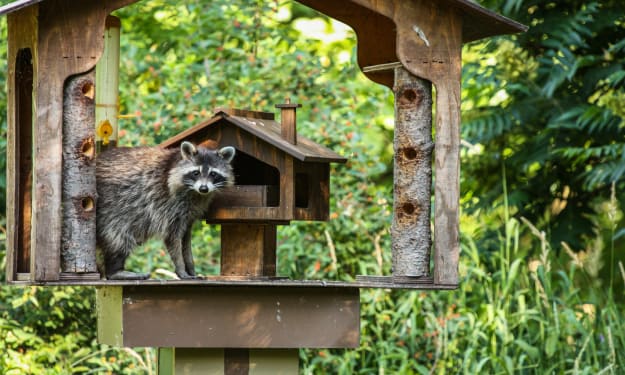Gardening Reduces Stress and Improves Mental Health
Gardening for a Happier, Calmer You!

In today's fast-paced world, stress has become an part of our daily lives. We constantly search for ways to alleviate this stress and enhance our mental well-being.
One of the most effective yet often overlooked methods is **gardening**. Beyond the beauty of blooming flowers and the satisfaction of home-grown vegetables, gardening offers profound benefits for our mental health. This article delves into how gardening can reduce stress and improve mental health, providing you with compelling reasons to pick up a trowel and start digging.
The Science Behind Gardening and Mental Health
Numerous studies have highlighted the **positive impact of gardening on mental health**. Engaging in gardening activities can lower cortisol levels, the hormone responsible for stress.
This reduction in cortisol leads to a decrease in overall stress and anxiety levels. Furthermore, the physical activity involved in gardening releases endorphins, also known as the "feel-good" hormones, which enhance our mood and overall sense of well-being.
Gardening as a Mindfulness Practice
Gardening naturally encourages a state of mindfulness. When you are tending to your plants, you become immersed in the present moment, paying attention to the sights, sounds, and smells around you. This practice of mindfulness helps to **quiet the mind** and reduce the chatter of daily stressors. The rhythmic and repetitive nature of gardening tasks, such as weeding or planting, can be meditative, promoting relaxation and mental clarity.

Connecting with Nature
Spending time in nature has been proven to have numerous psychological benefits. Gardening allows you to **connect with nature** right in your backyard. This connection can reduce feelings of anxiety and depression while enhancing your overall mood.
The sights of green plants and colorful flowers, the sounds of birds chirping, and the smell of fresh soil all contribute to a sensory experience that soothes the mind and spirit.
Physical Exercise and Mental Health
Gardening is not only a mental activity but also a physical one. The physical exertion required for digging, planting, and weeding provides a form of exercise that can improve physical health, which in turn, positively affects mental health.
Regular physical activity is known to reduce symptoms of anxiety and depression, improve mood, and boost self-esteem. Gardening offers a unique combination of moderate physical activity and exposure to nature, making it an ideal activity for overall well-being.
Social Interaction and Community
Gardening can also be a social activity. Whether you are gardening in your backyard, participating in a community garden, or sharing tips and produce with neighbors, it fosters social connections. These interactions can alleviate feelings of loneliness and isolation, which are often linked to mental health issues.
Being part of a gardening community provides a sense of belonging and support, which is crucial for mental well-being.
Therapeutic Effects of Gardening
Horticultural therapy is a recognized practice that uses gardening to improve mental health. This therapy is often used in settings such as hospitals, nursing homes, and rehabilitation centers. Engaging in gardening activities helps patients to focus on positive tasks, build self-esteem, and develop a sense of accomplishment.
The act of nurturing plants and watching them grow can be particularly therapeutic, offering hope and a sense of purpose.
Gardening and Cognitive Function
Gardening can also **enhance cognitive function**. Tasks such as planning a garden layout, choosing plants, and problem-solving related to plant care can stimulate the brain and improve cognitive abilities.
For older adults, gardening can help maintain and even improve cognitive function, reducing the risk of cognitive decline and dementia.
Sensory Stimulation and Creativity
Gardening stimulates all the senses. The feel of the soil, the sight of vibrant colors, the sound of rustling leaves, the smell of blooming flowers, and the taste of home-grown produce all contribute to a rich sensory experience.
This sensory stimulation can enhance mood and mental well-being. Additionally, gardening allows for creativity in designing garden layouts, choosing plant combinations, and experimenting with different gardening techniques. This creative expression is fulfilling and can boost mental health.
Gardening and Nutrition
Growing your own fruits and vegetables ensures a supply of **fresh and nutritious produce**. A diet rich in vegetables and fruits is associated with better mental health outcomes. The act of growing and consuming your own food can instill a sense of pride and accomplishment, further enhancing mental well-being.
Gardening as a Coping Mechanism
In times of stress or grief, gardening can serve as a coping mechanism. It provides a constructive and productive outlet for emotions.
The process of caring for plants and seeing them thrive can offer comfort and a sense of control during challenging times. Gardening encourages patience and perseverance, traits that are beneficial in managing stress and maintaining mental health.
Conclusion
In conclusion, gardening is much more than a hobby; it is a powerful tool for improving mental health and reducing stress. From the physical activity it provides to the sensory stimulation and social interaction it encourages, gardening offers a holistic approach to well-being.
Whether you have a spacious backyard or a small balcony, incorporating gardening into your life can lead to significant mental health benefits. So, pick up a spade, plant some seeds, and let nature work its magic on your mind and soul.
By embracing gardening, you are not only cultivating a beautiful and productive space but also nurturing your mental health. The benefits are plentiful and profound, making gardening a valuable practice for anyone seeking to improve their mental well-being.
About the Creator
Baljeet Singh
Hello! I’m Baljeet Singh, a Web and Digital Consultant with a B.Tech in Computer Science.
Proud dad of a cuddly 3-year-old, I thrive on tech blogs, sports, gardening, and nature adventures. Dive into my world of tech tips and family fun
Enjoyed the story? Support the Creator.
Subscribe for free to receive all their stories in your feed. You could also pledge your support or give them a one-off tip, letting them know you appreciate their work.






Comments (1)
So informative. Gardening really is therapeutic.